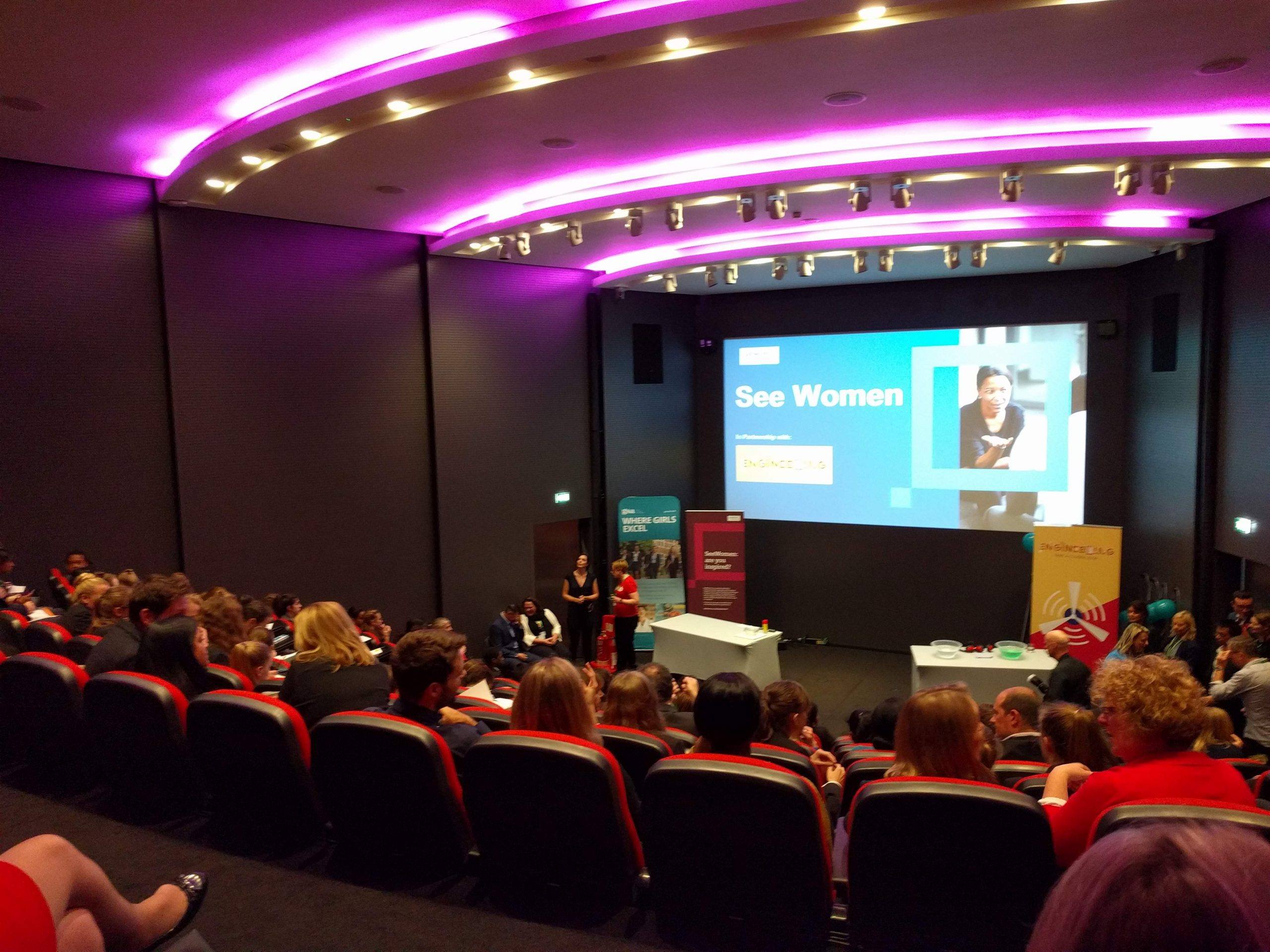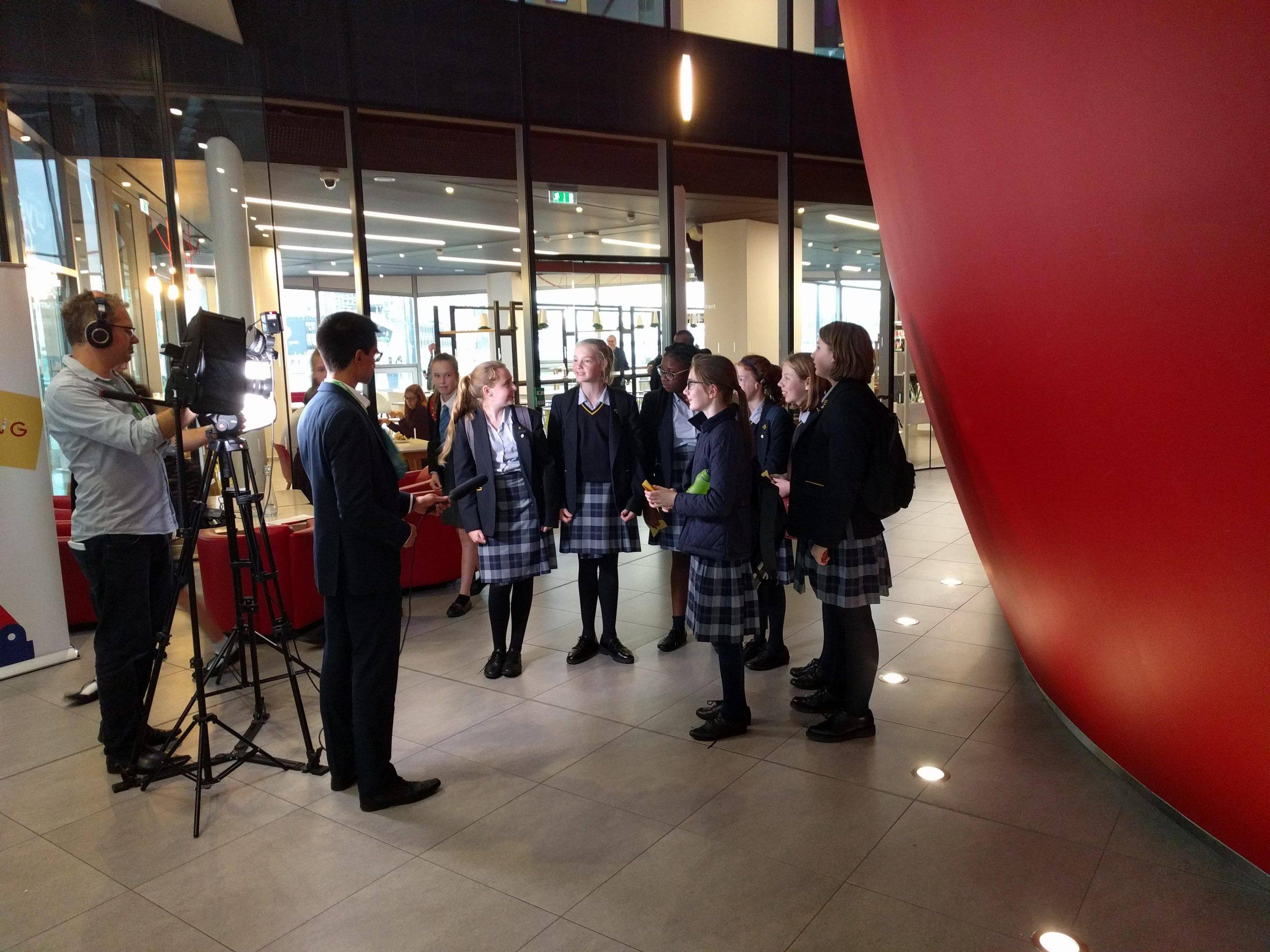Burgess Hill Girls is joining together with Burgess Hill Academy, engineering giant Siemens and the Government’s Year of Engineering campaign to inspire girls to study more STEM (science, technology, engineering and maths) subjects and tackle the UK’s shortage of women engineers. Women make up only 15% of engineering students at UK universities and less than 15% of all STEM jobs are done by women.
Fifty girls – 25 from each school – attended an interactive stage show, SeeWomen, at Siemens’ flagship building, The Crystal, at Victoria Dock in London on 6 November. The event was part of an innovative national partnership between Siemens and the Girls’ School Association in support of the Year of Engineering – a Government campaign to encourage more young people from all backgrounds to discover what they could achieve as engineers.
The girls were taken on an interactive, energetic journey as they investigated the world of STEM, meeting and learning about contemporary women engineers and the contribution they make to shaping the world around us. There were live experiments and thought-provoking activities to empower young women to have the confidence to set future goals and pursue their dreams.
The show is particularly targeted at inspiring young girls who don’t consider themselves ‘scientists’ or who have no clear career vision or conversely too rigid a vision of what science is.
Science teachers heard from Dr Jess Wade, post-doctoral researcher in the Department of Physics and Centre for Plastic Electronics at Imperial College London. Dr Wade is passionate about recruiting and retaining female scientists.
Head Mrs Laybourn said: “We know that girls in a single-sex learning environment are more likely to study STEM subjects at GCSE and A level, but the shortfall in women engineers nationally shows very little sign of improvement and represents a terrible waste of talent. This is a fantastic initiative which is attracting girls from a wide range of schools.”





